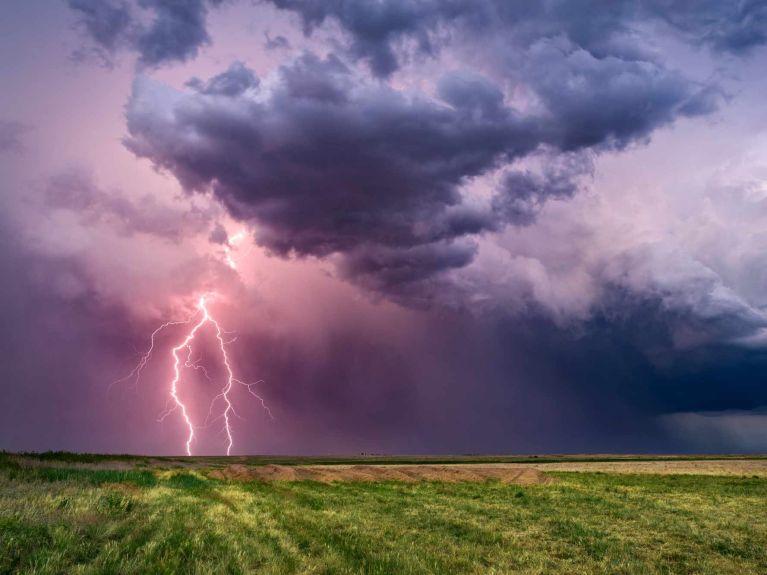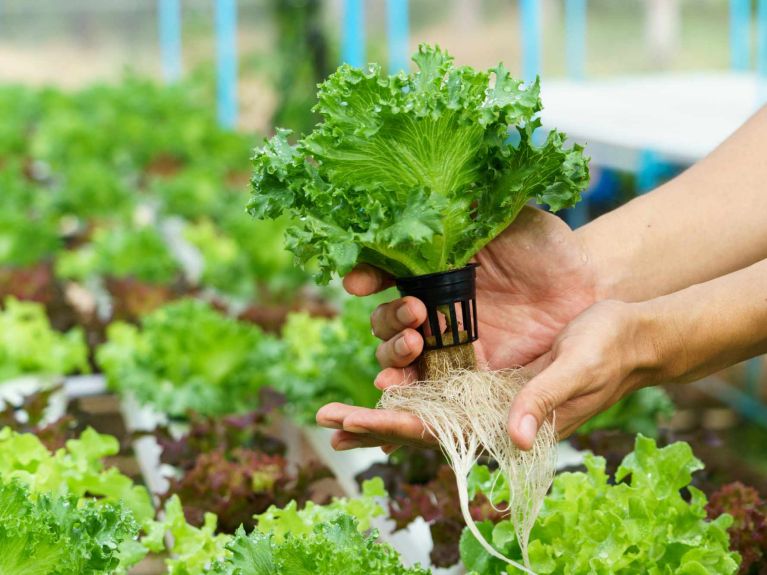Ideas to combat flooding and water shortages
Climate change is forcing us to rethink the way we use water. Three projects from Germany illustrate the form this could take.

Flooding, rising sea levels and drinking water shortages: global warming is causing numerous problems when it comes to water. Three projects from Germany illustrate how we can respond successfully to changed environmental circumstances.
Coastal protection: seagrass as a breakwater
Climate change is posing a threat in the form of rising sea levels – also on Germany’s North Sea and Baltic Sea coasts. Erecting barriers and raising dykes is not the only way to protect coastal areas, however. “Soft” measures can, too – such as large seagrass meadows in coastal waters, for example. They slow down waves, hold back sediment particles and strengthen dunes. However, the Earth lost at least 30 per cent of its seagrass meadows in the twentieth century. In the SeaStore project, scientists from six research institutions in northern Germany have set themselves the goal of replanting the seagrass meadows in the Baltic Sea.
Flood protection: storm warnings from AI

Artificial intelligence keeps a watchful eye over the 8,500 residents of Ergoldsbach in Lower Bavaria. The aim is to protect them from the consequences of devastating storms and flooding. To this end, the AI-based early warning system uses data from around 30 weather and water level sensors in the region, analyses precipitation rates, humidity levels, temperatures, wind directions and water levels, and evaluates the meteorological data supplied by the Deutscher Wetterdienst – Germany’s National Meteorological Service. If critical levels are exceeded, the AI automatically alerts residents, the emergency services and local government by SMS, e-mail or messenger services. If the project is successful, all Bavarian municipalities are to be equipped with the early warning system.
Water recycling: the HypoWave research project

Heatwaves and dry summers are a problem for farmers in particular. Researchers working on the HypoWave project have developed a water-saving concept for hydroponic vegetable production. Hydroponic cultivation involves growing seedlings in a nutrient solution without earth, their roots hanging directly in nutrient-rich water. The water that this does require comes from the local sewage treatment plant. In the successor project HypoWave+, large-scale implementation of the process is currently being trialled in a greenhouse in the Lower Saxon town of Weissenberge, where tomatoes and peppers are being grown for the regional market on an area of one hectare.
You would like to receive regular information about Germany? Subscribe here:
